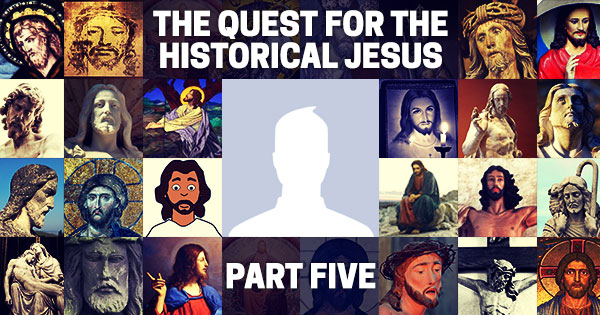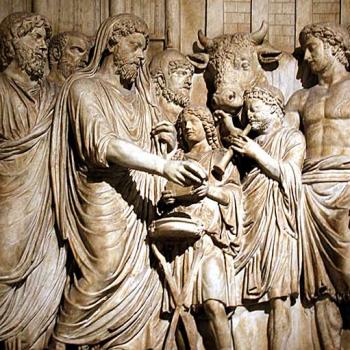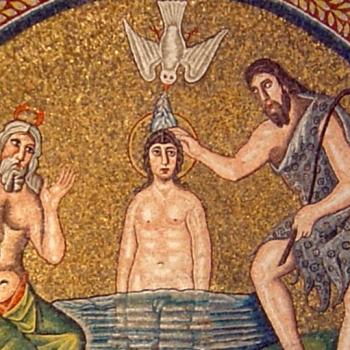This five part series is written by Christian Chiakulas. Part one is here, part two is here, part three is here, part four is here, and part five is here.

A sketch of the Historical Jesus is called a “reconstruction,” but ironically, from a Christian perspective, it appears that much more has been stripped away than added.
That reaction isn’t wrong. We’ve lost an entire gospel (John), many sayings and miracles, the Christmas stories, and thousands of years of theology and exegesis, all in pursuit of the Historical Jesus, the real man who lived 2,000 years ago and founded one of the world’s great religions.
Some Christians might wonder: what is the point of all this? If so much of the traditional Christian story is ahistorical, what’s the point of even being a Christian? If it’s impossible to definitively know exactly what Jesus said and did, why should anyone follow him?
These questions are very personal to me. My Christian faith was destroyed when I first learned about the Historical Jesus. The stories I had so earnestly believed were like beams holding up the walls of Christianity: without them, the edifice collapsed.
So what’s left to found a religion on? When you take away all that, is it still worth being a Christian?
Of course! First of all, just because something isn’t historical doesn’t mean it isn’t true. Maybe Jesus wasn’t actually born in Bethlehem, but that doesn’t make the meaning of Christmas any less profound. Maybe Jesus was wrong to believe that God would bring His kingdom to Earth in the 1st century, but that doesn’t make the vision of the Kingdom any less appealing. Maybe Jesus didn’t physically, literally rise from the dead, but that doesn’t mean that he’s not still here with us in Spirit, as long as we continue to follow him on his Way.
Jesus of Nazareth lived in a world of unimaginable injustice, a world of brutality, poverty, and oppression. He was part of a religion that constantly dreamed of deliverance from that world, of a God that promised reconciliation, repentance, and deliverance from misery.
He dined with untouchables and healed the unworthy. He welcomed all, even Gentiles, and advocated for the people who had no advocates. His Kingdom of God, whether he thought it would arrive by supernatural intervention or by action and example, is still the most humane vision of society ever conceived.
He challenged the greatest Empire on the planet and went head to head with the leaders of his own religion. Even crazier, he stood up to those forces nonviolently and admonished others to do the same. He was so passionate about his vision of the Kingdom of God that he risked, and eventually gave, his life for it.
I believe that Jesus is worth following even apart from belief in God, but I don’t believe in telling people how to practice their religion or spirituality. There is certainly a place for churches and ministers and pastors and spiritual leaders and there’s certainly great value even in the non-historical parts of the Gospels, as well as the Bible in general.
There is nothing wrong with knowing that Jesus wasn’t born in Bethlehem and still celebrating Christmas; I do. There is nothing wrong with not believing in the literal resurrection and still celebrating Easter; I do. There is nothing wrong with understanding that the Catholic Church has teachings based on historical falsehoods and still attending church; I have friends who do.
Christians shouldn’t shy away from learning about the Historical Jesus. Jesus Christ is a compelling figure, but so is Jesus of Nazareth. Many Christians will find, as I did, that the “Jesus of history” and the “Christ of faith” can be the same person.
Five blog posts is nowhere near enough to cover everything about Jesus’s life. If you’re interested in continuing the quest, I highly recommend you begin with E.P. Sanders’s The Historical Figure of Jesus. It’s the most thorough and most beginner-friendly guide to the Historical Jesus I’ve yet found, and is aimed at non-Christians and Christians alike.
Marcus Borg’s Jesus is readable, well-written, and more Christian-friendly than Sanders’s book. It lays out a strong case for the non-eschatological Kingdom of God and for a progressive approach to Jesus in general.
John Dominic Crossan’s masterful How to Read the Bible and Still Be A Christian provides an exceptional guide to living a Christian life while still reading the Bible historically.
Uta Ranke-Heinemann’s Putting Away Childish Things is about the misconceptions Christian churches foster for their own benefit, and how you can have a living faith without them.
Geza Vermes’s Jesus trilogy (Jesus the Jew, The Religion of Jesus the Jew, and The Authentic Gospel of Jesus) provides the most exhaustive explanation of how and why the historical background surrounding Jesus is crucial for understanding him.
Too many Christians are afraid to question their convictions for fear of puncturing their faith. The religion of Jesus of Nazareth, however, is not a balloon; poking a hole in it (or even a million holes) won’t destroy it. Rather, it is like an artifact buried in the ground: as you chip away at the layers of tradition, mythology, theology, doctrine and other accumulated detritus, you come to realize that you’re not destroying a rock, but are in fact uncovering a treasure of indescribable value and beauty.
 About Christian Chiakulas
About Christian Chiakulas
Christian Chiakulas is a writer and musician from Chicago. He studied writing at Columbia College and writes both fiction and nonfiction. Find him on Twitter and Facebook.















